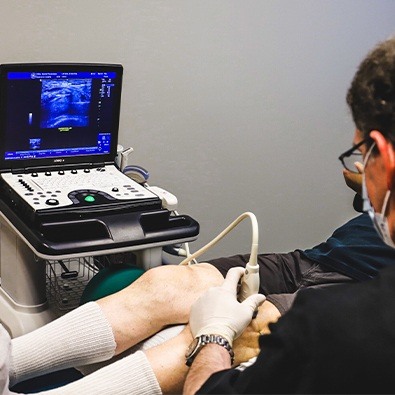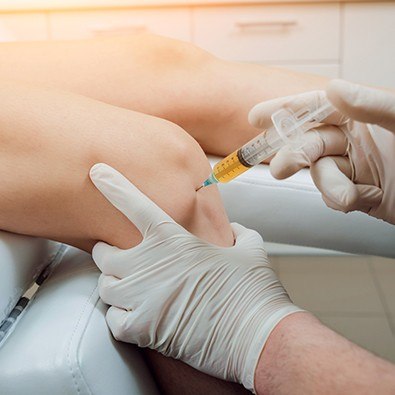
Fax: (860) 430-9693
Glastonbury, CT 06033

The Meniscus is a C-shaped specialized cartilage in the knee that performs two important functions: cushion the joint and provide joint stability. Each knee has two menisci – one on the inner part of the knee (the medial meniscus) and one on the outer part (the lateral meniscus). The medial meniscus is much more commonly injured. We offer solutions for treating meniscus tears in Glastonbury, CT at Valley Sports Physicians & Orthopedic Medicine.

Meniscal injuries occur for two main reasons – an acute or sudden injury to the knee, most commonly involving a sudden twisting movement while standing or running; and wear-and-tear or degenerative changes in the meniscus over time. Degenerative meniscus tears occur because the meniscus gradually thins out as we age. The thinned meniscus is more prone to tearing. Sometimes a seemingly innocent move, such as stepping off a curb and pivoting to turn can tear a thinned meniscus. Sometimes the tears just develop over time.

Meniscal tears can only be diagnosed by MRI. X-rays do not show meniscal tears. In addition, while the history and physical exam can raise the suspicion of a meniscal tear, studies have shown that the physical exam is actually pretty unreliable to confirm a meniscal tear, even among the best orthopedic surgeons.

Treatment for meniscal tears depends on the nature of the tear, the symptoms caused by the tear, and the age of the patient. Acute tears in younger people that cause symptoms of instability (such as buckling or giving-way of the knee), or tears that cause the knee to lock, usually need to be treated with arthroscopic surgery. But symptomatic degenerative tears in older patients DO NOT require surgery. In fact, studies have shown that arthroscopic surgery for symptomatic degenerative meniscal tears provides no long term benefit, speeds up the development of arthritis in the knee, and increases the risk of needing a knee replacement by 3-fold in the next 5-10 years!